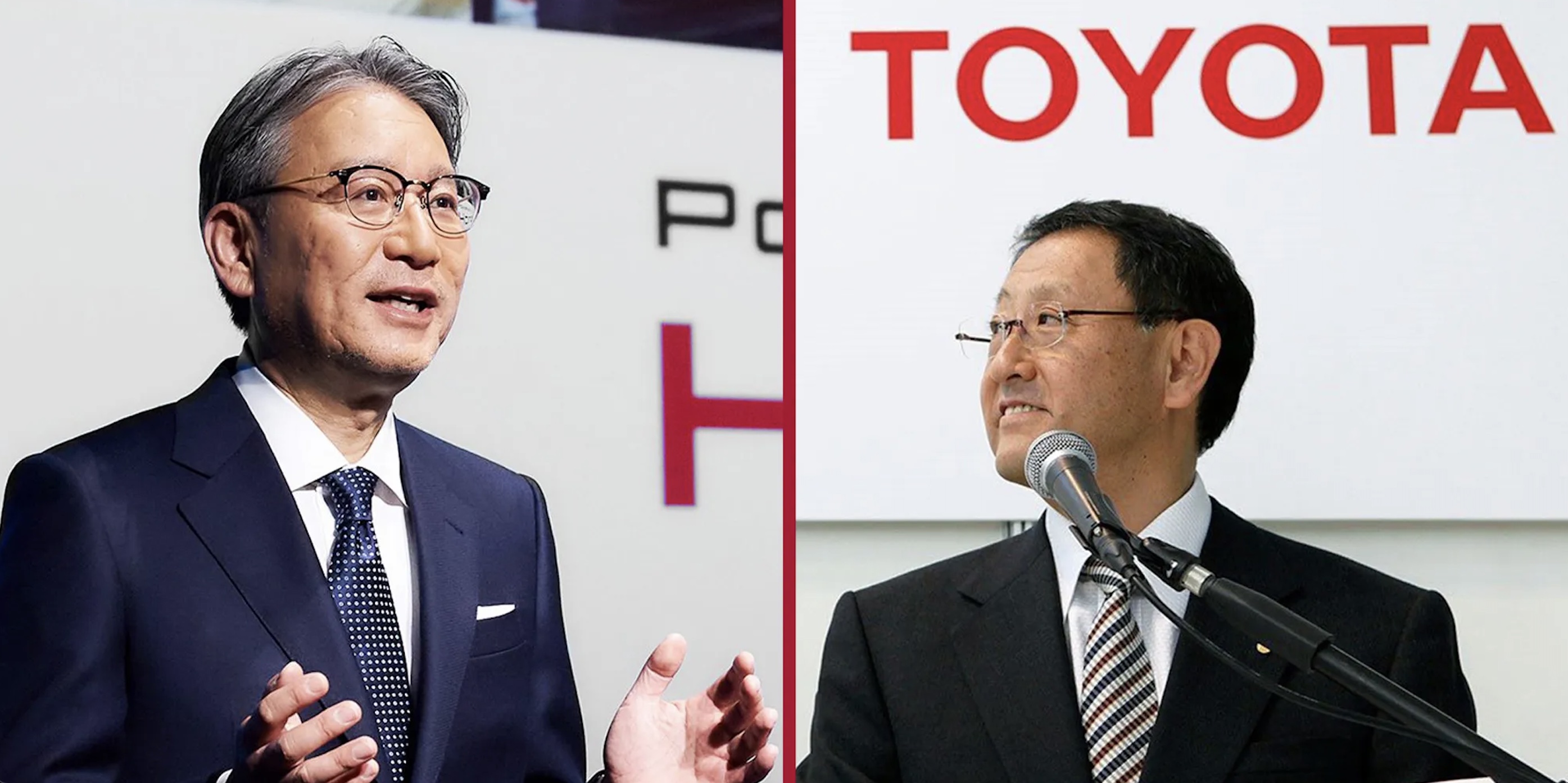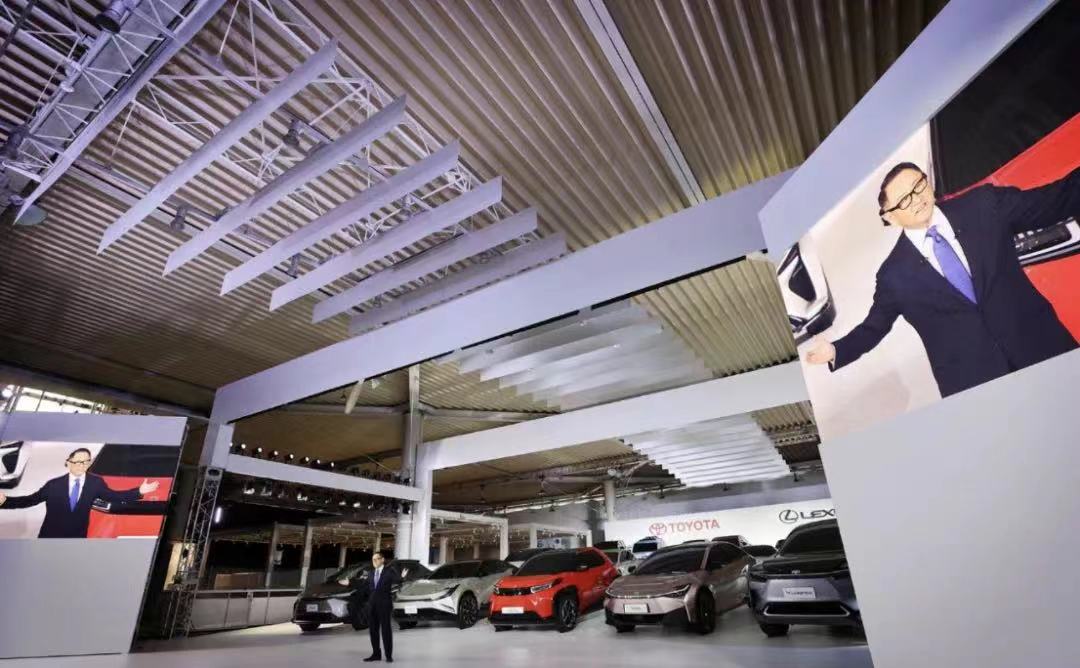In addition to Weibo, there is also WeChat
Please pay attention

WeChat public account
AutoBeta


2024-11-03 Update From: AutoBeta autobeta NAV: AutoBeta > News >
Share
AutoBeta(AutoBeta.net)01/24 Report--
Toshiro Mibe, Honda's new chief executive, said in a recent interview that Honda had determined 10 years ago that hydrogen-fired engines would not become mainstream and shouted to Toyota that it should stop pursuing hydrogen-fired engines and focus on the development layout of pure electric vehicles. At the same time, he said that this technology route is not completely abandoned, in large electric trucks, hydrogen fuel cells can still be seen as a solution.

Three Minhong made the statement in a note sent to the media, saying that Honda conducted a comprehensive technical review of hydrogen combustion engines in recent years, but found that it was not suitable for automobiles. Therefore, it is no longer seen as the best solution to solve the carbon dioxide emissions problem. "We have studied the possibility of every route that exists," he told the media. " "as for hydrogen-fired engines, we see some quite difficult technical challenges," Miba said. So, about 10 years ago, we decided that this was not going to be mainstream. " The statement seems to convey that Honda and Toyota have taken a different stand. In the past few years, both of them have advocated hybrids. Three years ago, Honda, which was jokingly described by car enthusiasts as buying engines for cars, is not as tough as Toyota, but it is also in a leading position in this field, such as the recently revamped and upgraded MPV, which is all hybrid models.
Judging from the sales data of new energy vehicles in 2021, it seems that there is a growing consensus among countries that the development direction of new energy vehicles will be focused on pure electricity. Previously, the industry once called this route the bend overtaking of new energy vehicles. The full electrification of traditional Chinese car brand BYD led to its sales of 92823 vehicles in 2021, an increase of 236.4 year on year, accounting for 95 per cent of total sales. Tesla, NIO, Xiaopeng Motor sales also skyrocketed to varying degrees in the last quarter of last year. Tesla also surpassed Toyota in terms of market capitalization management. These data have forced Toyota Honda to reconsider its future choice of technology route.
Under the performance of the current market, as well as some policy restrictions, some car manufacturers have to accept that electric vehicles are the future solution. But previously, some of the original auto industry giants did not think in this way, such as Toyota CEO Akio Toyoda in Japan, where the main bet was on hydrogen, and before that, hybrid was the best solution. In at least some of its public statements, Toyota came across as a stubborn opposition to electric cars, arguing that pure electricity was not in Japan's development interests in terms of environmental pollution and unemployment. Some of his views can easily be interpreted as efforts to slow down the popularity of electric cars.
Toyota President Akio Toyoda said publicly at the annual meeting of the Japan Automobile Manufacturers Association in December 2020 that pure electric vehicles had been over-hyped. The Japanese government did not take into account its real carbon dioxide emissions, the impact on power shortages, the damage to consumers' rights and interests, and the impact on the traditional automobile industry. In September 2021, Mr. Toyoda's views on electric cars remained unchanged. At the regular meeting of the Japan Automobile Manufacturers Association, Mr. Toyoda warned that the Japanese government set to reduce Japan's greenhouse gas emissions by 2030. The goal of carbon neutralization by promoting pure electric cars by 2050 is unrealistic and will deal a devastating blow to the Japanese economy. He believes that electric cars are more polluting than fuel vehicles, and the promotion of electric cars will lead to the collapse of some existing business models.

Honda, on the other hand, is less clear-cut and more concerned about the market's acceptance of electric car products. Its previous position is not as clear-cut as Toyota's. There may be some differences between the two, but basically what they used to pursue was an attempt to keep them market-oriented. Honda and Toyota are both major brands of Japanese cars and are famous around the world for their gasoline models. Camry, Accord, CR-V, RAV-4 and so on are the best-selling models in the mainstream market.
The route rejected 10 years ago is now publicly stated, which verifies that it is not understood that Honda is cutting with Toyota in the face of the challenge of electric cars. In fact, although Toyota is still trying the direction of hydrogen combustion engine, it is also eager to make its attitude clear. On December 14 last year, Toyota held an electric vehicle strategy presentation, and Toyota CEO Akio Toyoda announced that he would invest $35 billion in electric vehicle research by 2030, and 30 electric vehicles would be launched before that. The Lexus brand will also be fully transformed into an all-electric brand, with sales of 3.5 million new energy vehicles. Compared with his statement a year ago, Toyota's position has taken a 180-degree turn. not only that, he also complained that it was completely wrong to evaluate that "Toyota is not interested in electric cars" and that "Toyota is not actively promoting electric vehicles." he believes that the new Toyota goal he put forward in December is the combined scale of China, Daimler, Peugeot Citroen and Suzuki. Environmental groups also put Toyota at the bottom of the climate action list, which he modestly accepted, but commented that "Toyota is not actively promoting electric cars." if sales of 3.5 million vehicles and 30 models cannot be called positive, then there is no positive.

Judging from the above remarks of the two fields, they have had to accept the reality that pure electricity is dominant in small cars. Honda is also working with LG Chemical to build a battery factory in the United States. LG Chemical's American customer is General Motors, which is expected to have a maximum annual production capacity of 40GWh, which can power 600000 electric vehicles. Mihong believes that Toyota should stop pursuing hydrogen-burning engines, focus on pure electric vehicles in the future, and does not deny that hydrogen technology is the best fuel choice for environmental protection, especially in large transport models. "what is the mainstream, small cars are electric cars, and for larger commercial use, it should be hydrogen fuel cells," he said. This is our conclusion so far. "
Welcome to subscribe to the WeChat public account "Automotive Industry Focus" to get the first-hand insider information on the automotive industry and talk about things in the automotive circle. Welcome to break the news! WeChat ID autoWechat
Views: 0
*The comments in the above article only represent the author's personal views and do not represent the views and positions of this website. If you have more insights, please feel free to contribute and share.











© 2024 AutoBeta.Net Tiger Media Company. All rights reserved.